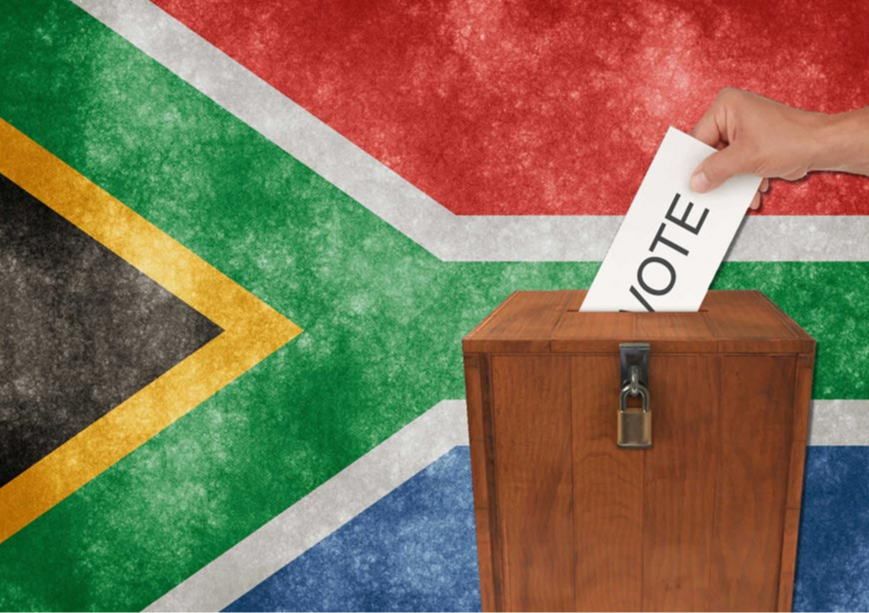
South Africa will have its next national and provincial elections on 29 May. Various surveys suggest that for the first time since the end of the Apartheid government, the African National Congress (ANC) may fall short of a single majority. Arguably, as a measure to restore its image, on 12 January, the ANC instituted proceedings in the International Court of Justice (ICJ), against Israel, for Genocide Convention violations. This action garnered South Africa a lot of accolades from around the world. However, as the prospect of a coalition government gains more ground, the country has some pressing domestic challenges, namely its fractured democracy.
Since the fall of Apartheid in 1994, South Africa has seen significant societal transformations and the emergence of constitutional democracy.
When former US President Abraham Lincoln characterised democracy as “the government of the people, by the people, and for the people”, he certainly did not have the South African democracy in mind. Indeed, since the fall of Apartheid in 1994, South Africa has seen significant societal transformations and the emergence of constitutional democracy. And claiming that South Africa’s democracy is failing would be uncharitable. Although South Africa remains a functional democracy, there are some visible fractures in its democratic principles that need to be reinforced and solidified.
ANC’s waning influence
Currently, the African National Congress (ANC) holds the maximum number of seats in the Parliament, followed closely by the white-majority Democratic Alliance (DA), the largest Opposition party and the left-leaning Economic Freedom Fighters (EFF). In 1994, during South Africa’s first post-Apartheid election, Nelson Mandela was elected as president. Since then, the African National Congress (ANC) party has been in power. However, the ANC has a checkered record of leading, and its prospects remain uncertain. Only 49 percent of voters cast ballots in 2019; this time around, even lower voter turnout is anticipated.
In a contrasting development, many new and untested political parties have emerged over the past few years in response to the ANC’s steadily declining support base. Approximately 400 political parties and independent candidates are slated to participate in the next election; 60 of these new parties were registered in 2023 alone. This is the highest number of parties fighting in the election in South African history. South Africa even has a registered party, “Operation Dudula”, which translates to “push out” in the Zulu language. The party promises to focus only on preventing immigration and driving out immigrants.
Approximately 400 political parties and independent candidates are slated to participate in the next election; 60 of these new parties were registered in 2023 alone.
However, with an increasing number of political parties, the potential of coalition politics is no longer just a far-off possibility but rather an imminent reality. Furthermore, it is somewhat alarming how traditional coalition administrations have performed thus far at the local and provincial levels. These coalition parties’ underlying disagreements keep them unstable and allow certain politicians to take advantage of the situation.
Political party proliferation: Good or bad for democracy?
The objective of creating new parties, according to ANC Secretary General Fikile Mbalula, is to topple the ANC and introduce a different kind of coalition politics. Additionally, renowned political analyst Professor Sipho Seepe claims that the sharp increase in political parties is a vote of no confidence in existing parties, particularly the ruling party, plagued by incompetent leadership. Similar sentiments were expressed by political analyst Steven Friedman, who stated that the general public is unwilling to continue entrusting their future to major political parties. Indeed, the surge in the number of registered political parties indicates a vibrant political environment that reflects a wide range of public concerns and interests. A democracy is evolving when new voices and platforms start to appear.
However, an excessive number of political parties also implies that the votes are stretched too thin, thus wasting votes rather than strengthening the spirit of democracy. Although multiparty politics are required to allow citizens to voice their preferences for who should lead them, too many parties can undermine public trust in parties as a means of expressing interests and enforcing accountability, weaken the influence of the opposition, and make voting decisions unclear.
Challenges associated with political party proliferation
More options are beneficial, but only in certain situations. The South African democracy now has multiple layers of complexity due to this constantly expanding list of new political parties. One of the leading causes of political parties’ poor reputations is often their internal structures, which lack transparency. Furthermore, it is rare for newly formed political parties to attempt to bring in any change in the current organisational structures or cultural norms that they want to fight. People don’t consider them an alternative to ANC since they don’t inspire faith in their ability to bring in change. No wonder only EFF, which was formed 10 years ago, has managed to challenge the ruling ANC out of so many newly registered parties.
It is rare for newly formed political parties to attempt to bring in any change in the current organisational structures or cultural norms that they want to fight.
There is another dimension of these new mushrooming parties. These parties are frequently founded by leaders with a keen sense of entitlement, hindering their capacity to create useful relationships, even harming the party’s and the public’s connection. Consequently, such politicians alienate people, especially the younger generation that has grown disenchanted with politics.
Ultimately, the black community, whom these new political parties ostensibly seek to represent, suffers as a result of these developments. The last time around, 46 parties led by black people fought for the African vote out of a total of 48 parties. However, only 14 of the 48 received enough votes to be represented in Parliament. In other words, hundreds of thousands of votes were squandered on the 34 registered parties after meeting the required minimum threshold. Furthermore, the DA and Freedom Front Plus concentrated on assembling white votes while black parties engaged in conflict with one another. Continued rivalry amongst the black parties creates a vicious cycle, strengthening entrenched white racism.
Way ahead
Many refer to the 2024 election as the most significant for South Africa since the fall of Apartheid in 1994. Currently, the ANC remains the majority party in Parliament, with 230 out of 400 available seats. The DA has 84 seats, EFF has 44 and 11 other parties split the remaining seats. On 14 January, ANC commemorated its 112th anniversary as a liberation movement against apartheid. However, after 30 years in office, it’s possible that the ANC won’t receive the required 50 percent of the vote and will instead need to ally with the EEF or other parties to maintain its hold on power, resulting in a coalition government.
The DA and Freedom Front Plus concentrated on assembling white votes while black parties engaged in conflict with one another.
A healthy democracy must have multiple parties, but extreme fragmentation comes with its drawbacks. As parties subdivide, it gets challenging to govern a country. A coalition of numerous micro-parties is not necessarily more representative than one big-tent party. As the present performance of coalitions at the local government level remains mostly contentious and unstable, the prospect of a coalition government at the national level doesn’t inspire hope.
With almost 400 parties running in the 2024 election, hundreds of thousands of votes will likely be wasted, just like in 2019. The African votes will be split much further this time. The potential of these new micro-parties to position themselves as viable long-term alternatives to the three mainstream parties and whether or not they will substantially hurt the ANC will only be known after the election results.
Samir Bhattacharya is an Associate Fellow with the Strategic Studies Programme at the Observer Research Foundation
The views expressed above belong to the author(s). ORF research and analyses now available on Telegram! Click here to access our curated content — blogs, longforms and interviews.




 PREV
PREV


